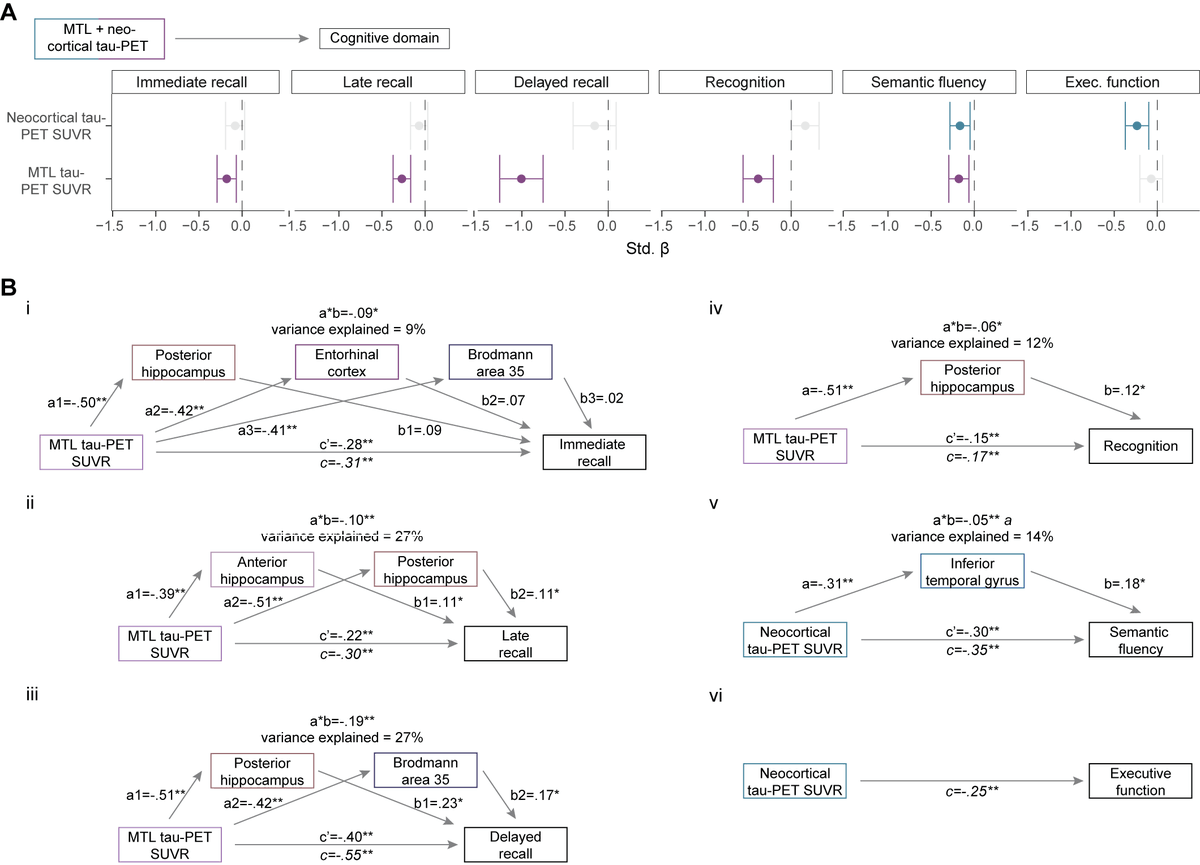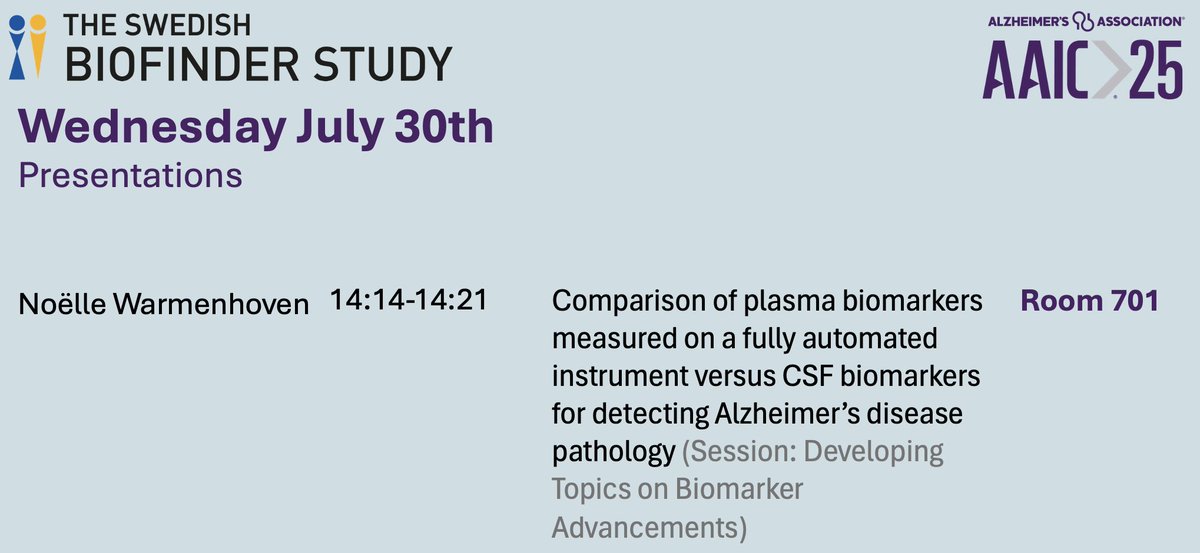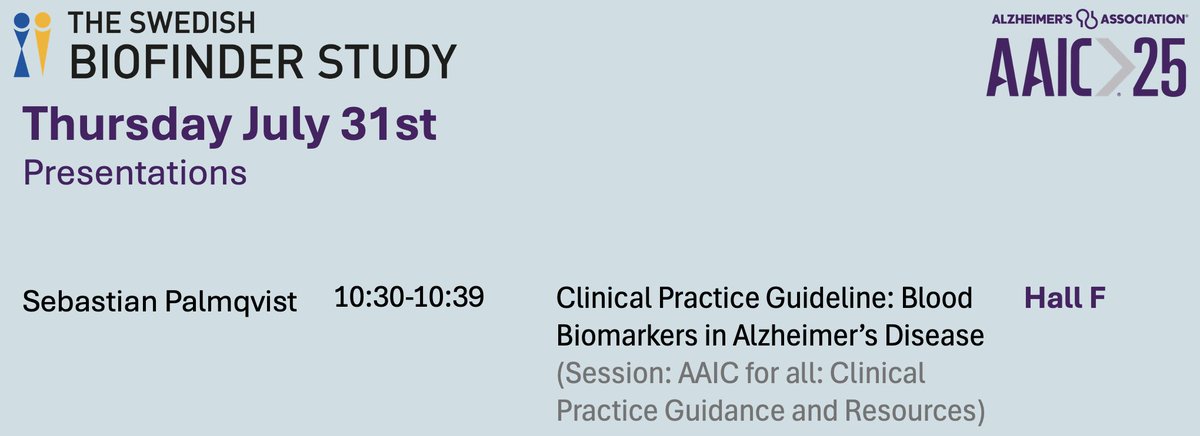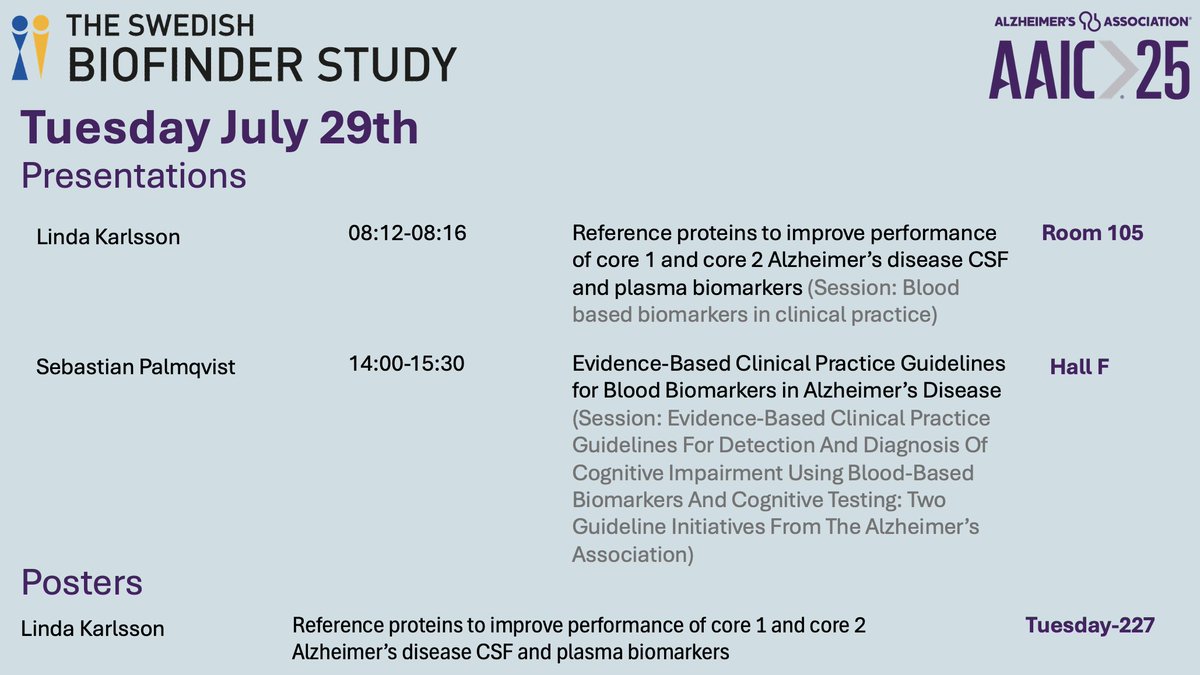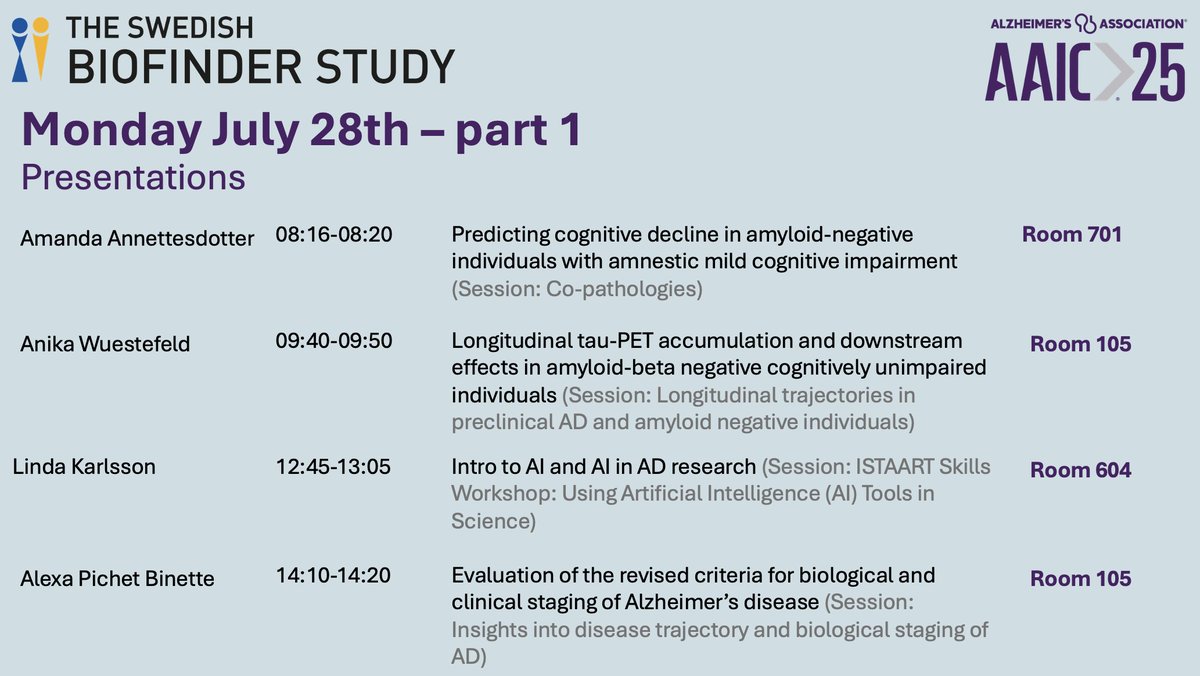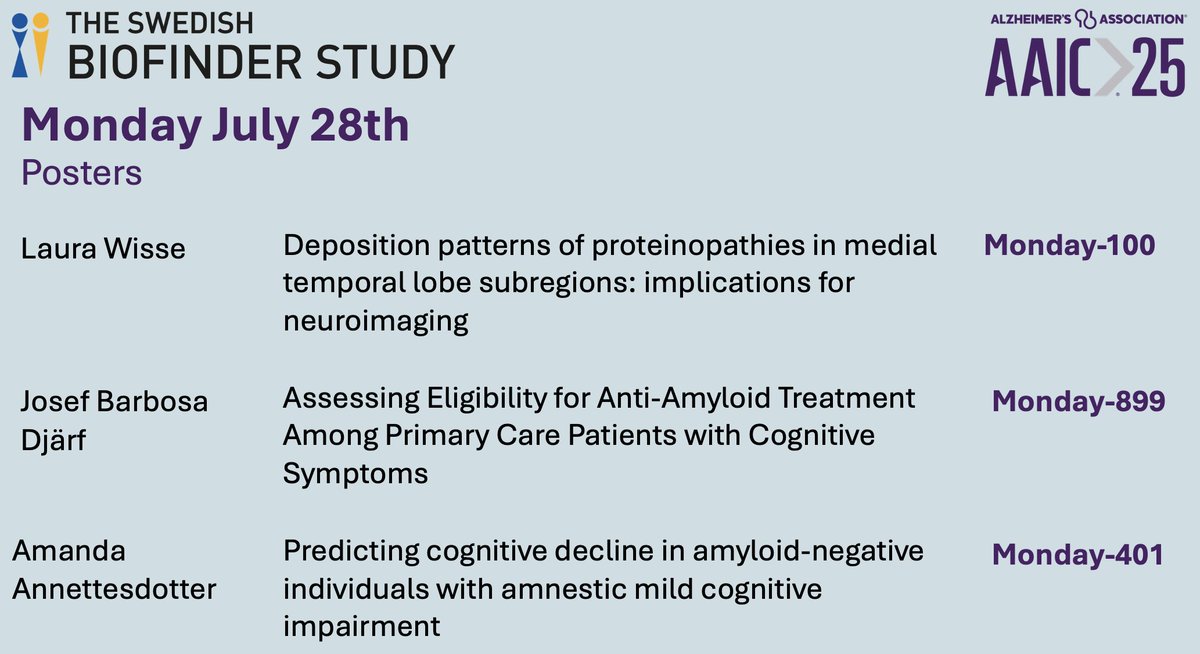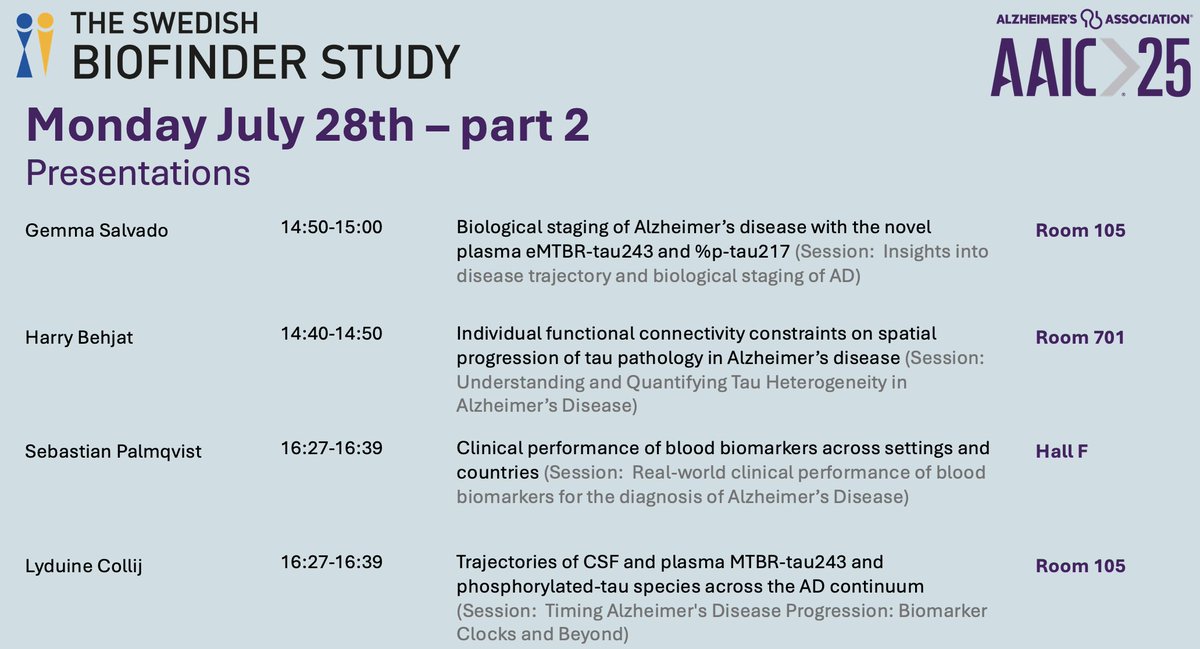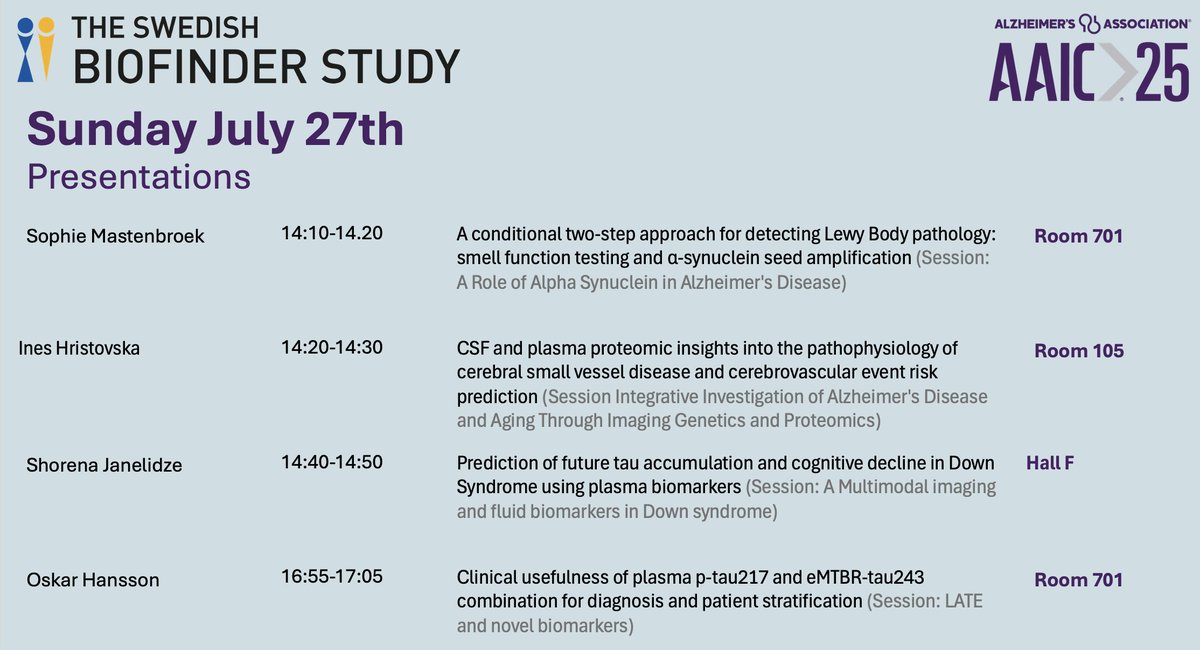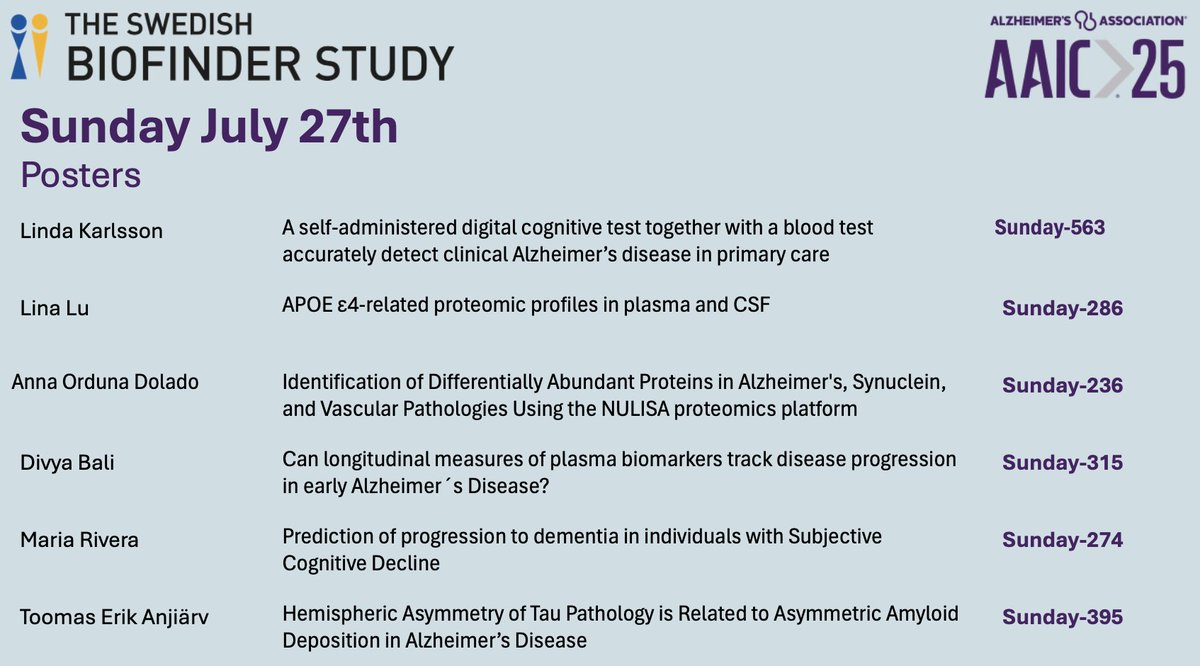News articles
-
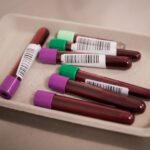
Blood Tests: Not Just for the Impaired?
In memory clinics and in research cohorts, immunoassays for plasma markers can now distinguish people who have Alzheimer’s disease... Read more... -
Looking Good: Immunoassays for Blood Markers
For years, scientists have been working toward blood tests for Alzheimer’s disease that could be used routinely in clinical... Read more... -

More opportunities to test for Alzheimer’s using new analytical method
A simpler method of analysing blood samples for Alzheimer’s disease has been tested in a large multicentre study, led... Read more... -

Simple, yet effective way to early detect Alzheimer’s disease
A simpler method of analysing blood samples for Alzheimer’s disease has been tested in a large multicentre study, led... Read more... -

How dementia affects the brain’s ability to empathize
Patients with frontotemporal dementia often lack the ability to feel empathy. A study at Lund University and the Karolinska... Read more... -

Reading the signs of dementia
In this Nature outlook the BioFINDER study group’s work on how blood tests are leading to earlier diagnosis, and... Read more...
Recent key publications
Primary care detection of Alzheimer’s disease using a self-administered digital cognitive test and blood biomarkers
Plasma Phosphorylated Tau 217 to Identify Preclinical Alzheimer Disease
Two-step detection of Lewy body pathology via smell-function testing and CSF α-synuclein seed amplification
Alzheimer’s Association Clinical Practice Guideline on the use of blood-based biomarkers in the diagnostic workup of suspected Alzheimer’s disease within specialized care settings
Evaluation of the Revised Criteria for Biological and Clinical Staging of Alzheimer Disease
Plasma phospho-tau217 for Alzheimer’s disease diagnosis in primary and secondary care using a fully automated platform
Plasma MTBR-tau243 biomarker identifies tau tangle pathology in Alzheimer’s disease
Plasma p-tau217 and tau-PET predict future cognitive decline among cognitively unimpaired individuals: implications for clinical trials
Machine learning prediction of tau‐PET in Alzheimer’s disease using plasma, MRI, and clinical data
Alpha-synuclein seed amplification assay longitudinal outcomes in Lewy body disease spectrum.
Altered Empathy Processing in Frontotemporal Dementia.
Diagnosis of Alzheimer’s disease using plasma biomarkers adjusted to clinical probability.
A comprehensive head-to-head comparison of key plasma phosphorylated tau 217 biomarker tests.
Lewy body pathology exacerbates brain hypometabolism and cognitive decline in Alzheimer’s disease.
Blood Biomarkers to Detect Alzheimer Disease in Primary Care and Secondary Care
Plasma Phosphorylated Tau 217 and Aβ42/40 to Predict Early Brain Aβ Accumulation in People Without Cognitive Impairment
MRI Signature of α-Synuclein Pathology in Asymptomatic Stages and a Memory Clinic Population
Revised criteria for the diagnosis and staging of Alzheimer’s disease
Disease progression modelling reveals heterogeneity in trajectories of Lewy-type α-synuclein pathology
Tau Positron Emission Tomography for Predicting Dementia in Individuals With Mild Cognitive Impairment
Disease staging of Alzheimer’s disease using a CSF-based biomarker model
A blood-based biomarker workflow for optimal tau-PET referral in memory clinic settings
Highly Accurate Blood Test for Alzheimer’s Disease Comparable or Superior to Clinical CSF Tests.
Plasma Biomarker Strategy for Selecting Patients With Alzheimer Disease for Antiamyloid Immunotherapies.
The α-synuclein PET tracer [18F] ACI-12589 distinguishes multiple system atrophy from other neurodegenerative diseases.
DOPA decarboxylase is an emerging biomarker for Parkinsonian disorders including preclinical Lewy body disease.
Cognitive effects of Lewy body pathology in clinically unimpaired individuals.
Clinical effects of Lewy body pathology in cognitively impaired individuals.
CSF MTBR-tau243 is a specific biomarker of tau tangle pathology in Alzheimer’s disease.
X posts
🚨New publication in Brain Communications!
In this study, we show that microglial cells play a key role in Alzheimer's disease, particularly in regulating changes in soluble tau, based on cell-type-specific genetic evidence.
🔗Full paper:
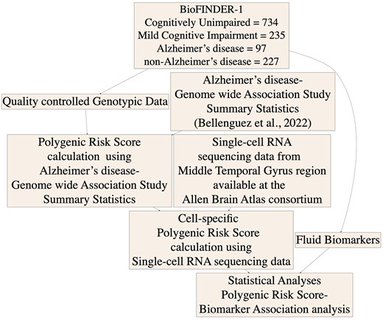
Cell-weighted polygenic risk scores are associated with β-amyloid and tau biomarkers in Alzheimer’s...
Kumar et al. report distinct cellular effects on measures of β-amyloid and tau. Importantly, they also found cell-l...
academic.oup.com
The study was led by Atul Kumar. Thank you to all co-authors: @DivyaBali06, @EStomrud, @SebastianPalmqv, @_JakeVogel_, @OskarHansson9, @NiklasMattsson4, and those not on X.
🚨Paper alert🚨
New publication in @JAMANeuro led by @gesalbla. In a multicentric study, we examined the clinical utility to assess preclinical #Alzheimer's disease in cognitively unimpaired individuals.
A 🧵...
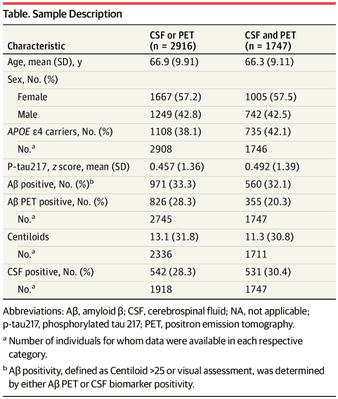
Plasma P-Tau217 to Identify Preclinical AD
This cohort study evaluates the use of plasma phosphorylated tau 217 in identifying preclinical Alzheimer disease in ...
jamanetwork.com
🙏Many thanks to all collaborators in this large study including 12 international cohorts: @DivyaBali06 @A_OrdunaDolado @JosephTherr @EStomrud @NiklasMattsson4 @EmmaCoomans @CharlotteTeuni1 @NesrineR95 @JuandoGispert @vincentDore2 @AzadehFeizpour
@DAlcoleaR @sylv_villeneuve @pedrorosaneto @SuzanneESchind1 @RikOssenkoppele @OskarHansson9 with data from @amsterdamumc @BarcelonaBeta @MayoClinicNeuro @mcgillu @prevent_ad @WashUMedADRC @WisconsinADRC… and those not in X.
🚨New publication in Nature Medicine!
In this study, we demonstrate that a brief, self-administered cognitive test battery can reliably identify individuals with cognitive impairment in a primary care setting.
Details:
Full paper: https://www.nature.com/articles/s41591-025-03965-4
Primary care detection of Alzheimer’s disease using a self-administered digital cognitive test and...
Nature Medicine - A brief, self-administered digital cognitive test, in combination with a blood test, accurately dete...
www.linkedin.com
The study was led by PhD students Pontus Tideman and @karlssonlinda1. Thank you also to all co-authors: @ErikRubenSmith @NiklasMattsson4 @EStomrud @SebastianPalmqv @OskarHansson9 and those not on X.
🚨New paper alert! Our study led by @teanijarv investigated why some individuals with Alzheimer’s disease (AD) develop hemispheric asymmetry in tau pathology and what drives this phenomenon.
Out now in Nature Communications! 🔗Full article:
A thread🧵👇
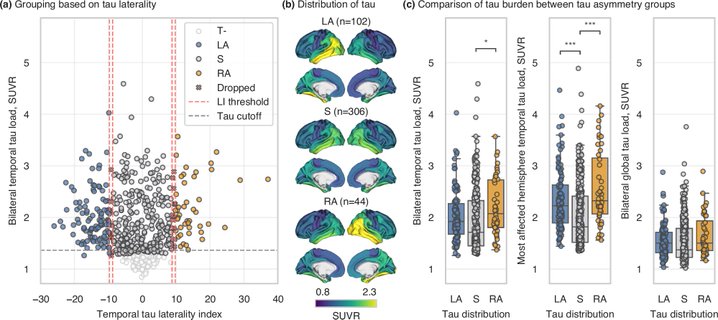
Hemispheric asymmetry of tau pathology is related to asymmetric amyloid deposition in Alzheimer’s...
Nature Communications - Asymmetrical distribution of tau pathology in Alzheimer’s disease is linked to asymmetrical am...
doi.org
7/🧵 These results suggest that hemispheric difference in Aβ deposition, rather than reduction in connectivity, is associated with asymmetric tau accumulation, highlighting regional vulnerability as a crucial factor in determining the distribution of AD pathology.
Big thanks to all co-authors and collaborators: @RikOssenkoppele @ErikRubenSmith @LECollij @aitchbi @jorittmo @karlssonlinda1 @DaniellevWe @JakeVogel @EStomrud @SebastianPalmqv @NiklasMattsson4 @NicolaSpotorno @OskarHansson9 + those not on X
🚨New publication in @NatureAging🚨
Co-led between @MontoliuGaya and @gesalbla.
We measured several tau peptides in blood and assess their different relationships with Alzheimer’s disease stages.
🧵

Plasma tau biomarkers for biological staging of Alzheimer’s disease
Nature Aging - Montoliu-Gaya, Salvadó et al. develop a blood-based model using tau biomarkers measured in a single ...
www.nature.com
4⃣In summary, we have developed a biomarker-based staging model using plasma tau biomarkers and validated in TRIAD. We believe these findings will enhance the application of blood tau biomarkers, improving patient management in both clinical trials and routine clinical practice.
Thanks to all coauthors: @JosephTherr , @NicholasAshton, @andrealessa, @NiklasMattsson4, @SebastianPalmqv, @EStomrud, @pedrorosaneto, and @OskarHansson9
And those not on X.
🚨New paper alert! This study led by @SEMastenbroek aims to make detection of α-synuclein pathology in the brain more time- and cost-effective. Out now in Nature Communications! 🔗 Full article: https://www.nature.com/articles/s41467-025-62458-7.epdf?sharing_token=fJsM7nw6WLFQSLEmJtlXiNRgN0jAjWel9jnR3ZoTv0MDVkWnZxGsgtCMfY18v2PG-JBJvKhRsSwlFHbyWcVEhi_UdJDYtyqFZKb0-1LE-RJuxLzTxso4Wsn_ZLSgyRQKvtbjLPDfKEVHUrWMYnYD648e1kcTBiQcj_tBKohdF6g%3D
A thread🧵👇
6/🧵Taken together, we present an accurate two-step approach for predicting LBP in the brain using a smell test followed by CSF SAA testing in smell-test positive individuals. This could minimize costs, reduce patient burden, and improve the known underdiagnosis of DLB and PD.
A huge thanks to all authors and collaborators who made this work possible! @OskarHansson9 @LECollij @_JakeVogel_ @SebastianPalmqv @FBarkhof @RikOssenkoppele and all not on X.
🚨Publication alert: This study led by @WuestefeldAnika aims to provide a more granular understanding of how tau pathology leads to specific cognitive decline in Alzheimer's disease. 🧠 Out now in Alzheimer’s & Dementia! Read it here:
🧵👇
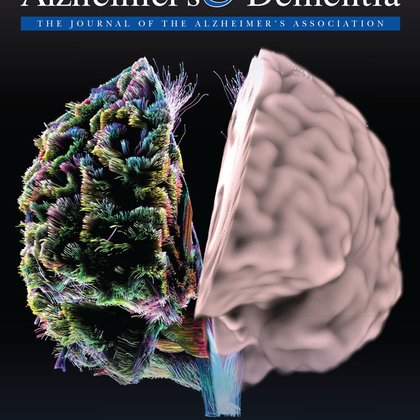
Tau, atrophy, and domain‐specific cognitive impairment in typical Alzheimer's disease
INTRODUCTION A granular understanding of the mechanisms linking tau pathology to cognitive decline in Alzheimer's diseas...
doi.org
7⃣This suggests that region-specific atrophy functions as one pathway of tau-induced cognitive subdomain impairments. Yet, large portions of variance remains unexplained, highlighting the need for investigating other mechanistic links.🔬
8⃣A huge thank you to all authors as well as the #ADNI study participants who made this work possible. Your contributions are vital for advancing our understanding of the disease and contribute to #ENDALZ.
6⃣Do certain regions uniquely mediate a given tau-cognition association? - Yes, tau–immediate recall was mediated by several MTL regions, tau–recognition by hippocampus & tau–semantic fluency by inferior temporal gyrus.
6⃣Do certain regions uniquely mediate a given tau-cognition association? - Yes, tau–immediate recall was mediated by several MTL regions, tau–recognition by hippocampus & tau–semantic fluency by inferior temporal gyrus.
Last but not least! Stop by today and tomorrow for the final two talks of our group at #AAIC2025!
Third day of #AAIC2025! Today our team will present on fluid biomarkers in clinical practice. Come say hi!
Good morning! After a great first day of #AAIC2025 with an amazing welcoming reception, we hope to see you bright and early on the second day at our talks and posters!
Our group is kicking off the first day of #AAIC2025 with four oral presentations and six posters! Come find us!
Come check out our posters today at #AIC2025!
As FDA-approved Alzheimer’s treatments reach patients, validating the ALZpath p-Tau217 assay against gold standard neuropathological outcomes is key. Our new neuropathology cohort study led by @DivyaBali06 is now out in Acta Neuropathologica Comms! 🔗
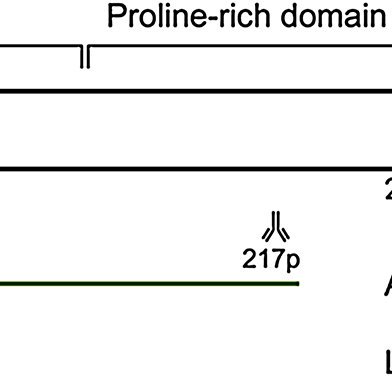
Comparison of plasma ALZpath p-Tau217 with Lilly p-Tau217 and p-Tau181 in a neuropathological...
There is an urgent need for accurate and validated methods to measure plasma phosphorylated tau (p-Tau) biomarkers i...
actaneurocomms.biomedcentral.com
In conclusion, p-Tau217ALZpath exhibited similar performance to p-Tau181Lilly, but its correlations with AD pathology measures were significantly lower than p-Tau217Lilly. Future studies are needed to replicate these findings in larger cohorts.
Big thanks to all the co-authors for their invaluable contributions: @gesalbla, Thomas Beach, Geidy Serrano, Alireza Atri, Eric Reiman, Andreas Jeromin, @OskarHansson9, and Shorena Janelidze.
New manuscript alert! Are plasma biomarkers🩸 predictive of Alzheimer’s disease progression in Down Syndrome (DS)? Our new study in collaboration with the ABC-DS consortium has now been published in @lancetneurology:

Prediction of amyloid and tau brain deposition and cognitive decline in people with Down syndrome...
Baseline and longitudinal plasma p-tau217 were associated with subsequent decline in global cognition, progression to de...
www.thelancet.com
7⃣These findings support implementation of especially plasma p-tau217, and potentially also GFAP, in prognostic workup of AD in people with DS in both clinical practice and drug trials.
A huge thanks to the @abc_ds_ team, all co-authors, and the participants of the study.
